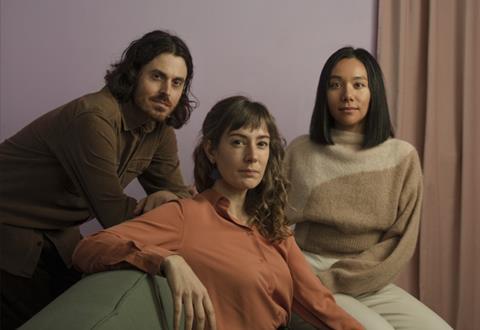Bruce Hodges takes a trip down to Mary Flagler Cary Hall in New York’s Dimenna Center on 13 August 2024 for the performance of Jonah Haven, Katherine Balch and Igor Santos

As part of the Time:Spans Festival, now in its ninth year, the exuberant piano trio Longleash lived up to the festival’s avant-garde promise with three strong works, crackling with invention. For cells mold me (2022) by Jonah Haven, who studies with Chaya Czernowin, his succinct programme notes can be quoted in their entirety:
A half-finished puzzle spins above the whale on stage.
Heavy and sweet, the kinks of its baleen feel familiar.
Haven’s poetic instincts were further borne out in six minutes of short bow strokes, coupled with piano, all gently incorporating sophisticated electronics. The bows themselves played a crucial role: each had loops of sewing thread wrapped around the hair in approximately three-inch intervals along the length. As the bows were drawn across the strings, a subtle wavering sound emerged.
Inspired by The Three-Body Problem, a 2008 science-fiction novel by Liu Cixin, Katherine Balch wrote different gravities for Longleash in 2023. Its four movements might be seen as meditations on gravity and other forces – such as the natural push–pull of chamber music itself. Balch’s effects include snap pizzicatos for the strings and, for the pianist, a plastic credit card to sweep the keys and produce tiny clicks. Each section has its own distinct colour, especially the finale, which seemed almost Schubertian at first, evoking a country dance.
Concert review: Longleash, Ches Smith (percussion)
Read: ‘Played with a bamboo chopstick’ - Premiere of the Month: A world of difference
Read: Jennifer Koh commissions new works for ‘Alone Together’ project
To close came the world premiere of Nossos Mãos (‘Our Hands’) by Igor Santos, a crisply inventive multimedia jolt combining live sounds, electronic processing and video images of hundreds of hands – waving, turning, clasping, praying, writing. As the trio interacted precisely with the video, the result was a panoply of rapid-fire visuals coupled with startling aural effects.
BRUCE HODGES



































No comments yet